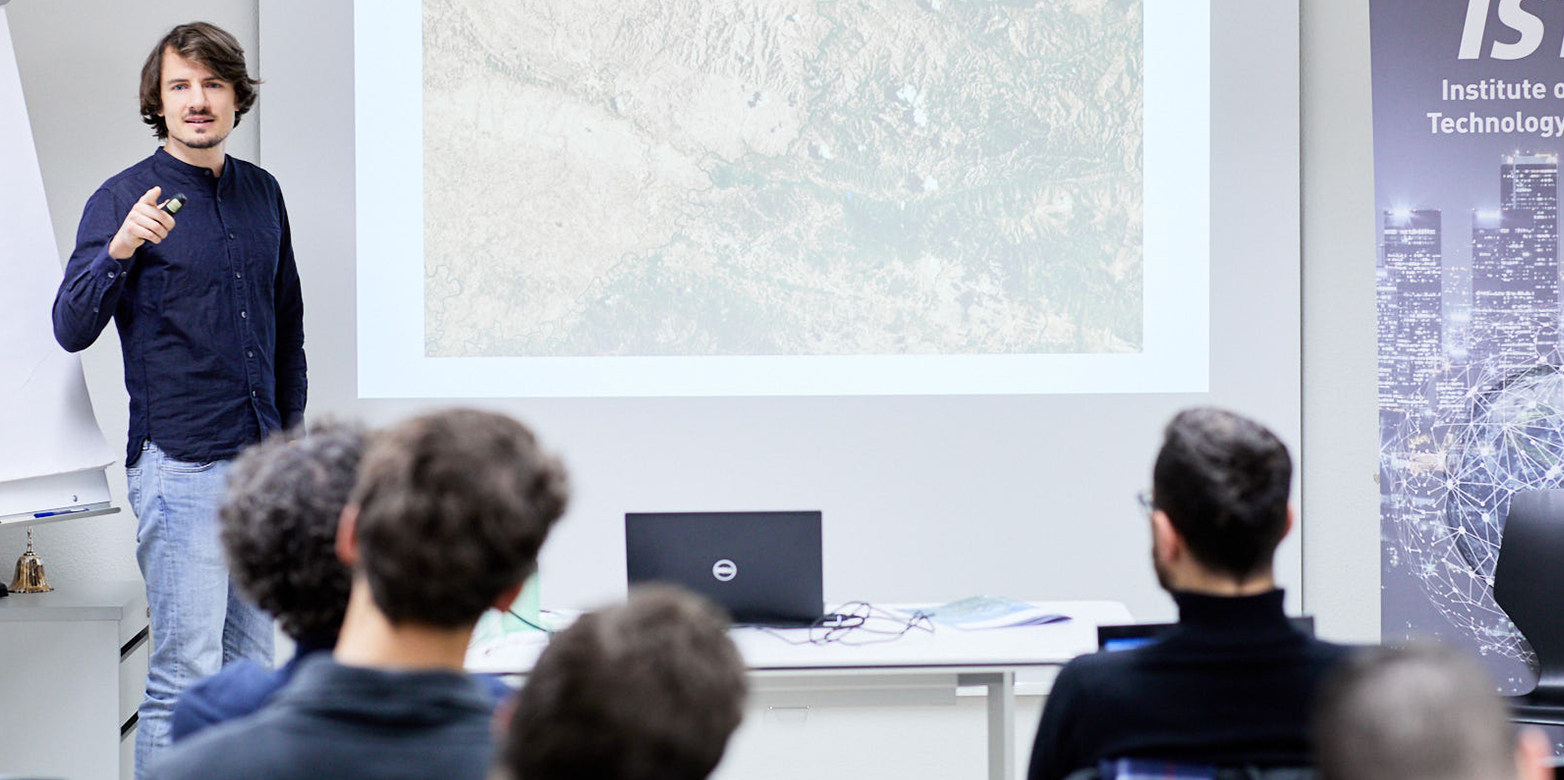Foreign aid and subnational variation in state capacity: Evidence from Colombia
We would like to warmly thank Dr. Sebastian Ziaja, researcher in the programme "Transformation of Political (Dis-) Order" at the German Development Institute / Deutsches Institut für Entwicklungshilfe (DIE), for his visit to the ISTP and his talk about the effects of foreign aid on state capacities on the subnational level.
by Andreas Eckmann

Does aid allocation affect subnational variation in state capacity, defined as the capability of the government to implement policies? This research question includes the two main aspects of Dr. Ziaja’s work. To answer it, he focuses on developing new measures of state capacity that can capture subnational variation. By combining these measures with geolocated aid data provides new insights on the link between foreign aid and state capacity.
First, how should we measure a concept such as state capacity? Especially in developing countries, state capacity on a subnational level often varies greatly. In both academia and policy, there have been different approaches to measuring subnational variation in state capacity. For example, previous research has attempted to measure state capacity using, among others, municipal tax data, cadastral records, conflict and crime data, network of roads, survey data on emergency response, taxation, and property rights. The OECD and its "States of Fragility" observation adds another attempt to the list of "weak state" concepts. Dr. Ziaja points out a key gap in the literature: Most studies use one-indicator approaches, which only capture a small facet of the concept (e.g. administrative capacity), preventing a comprehensive picture of state capacity. Dr. Ziaja addresses this gap by initially focusing on four countries: Colombia, Nepal, Sierra Leone, and Liberia. From these four countries, derive around 1,553 potential indicators. Dr. Ziaja’s aims to combine several indicators into latent state capacity measures.
Second, what impact does foreign aid have on institutions? To tackle this question, Dr. Ziaja presents the two following hypotheses from theory:
H1: Sector aid reduces administrative capacity in the target region. Donors often provide irrigation, electricity, and/or water to developing countries. But what are the political effects of providing such services? The provision of such services creates parallel structures for public good delivery. This relieves public pressure on the domestic government, reducing the need for state capacity. However, it is very difficult to be observed considering that the available data is not so great.
H2: Government and civil society aid increases administrative capacity in the target region. When donors work with government on governmental institutions and society, aimed at training them, then we should have increased state capacities.
Answering these questions helps policy-makers and politicians understand the costs and benefits of foreign aid across a variety of policy areas, such as terrorism (safe havens), migration (combatting the origin of human flight), environment (protect global common goods), and drug trafficking. Although previous research has examined these mechanisms, focus had been primarily given to state capacity and aid at the national level, ignoring significant subnational variation in state capacity and the allocation of the local context. Using Principle Component Analysis, Dr. Ziaja constructs measures of state capacity for each of the 33 departments (including Bogotá) in Colombia from 2005-2016. Combined with geolocated data on foreign aid, Dr. Ziaja examines the relationship between aid and sate capacity at the subnational level. The results from the empirical analysis reveal consistently negative effects for the lagged dependent variable (LDV) model in the fields of education, environment, government, health, peace, and social aid. However, this research is still in its infancy and the presented results are a first draft. Further steps include both expanding the scope across countries and increasing its level of local detail within countries.
The ISTP would like to thank Dr. Ziaja for giving such an interesting insight into the complex topic of foreign aid and measuring state capacity at such an early stage. We are looking forward to the future outcome on this subject and we hope to welcome him again at ETH Zurich in the near future!
To get a broadened sense of the ISTP and our topics of interest and past seminars visit our Colloquium page